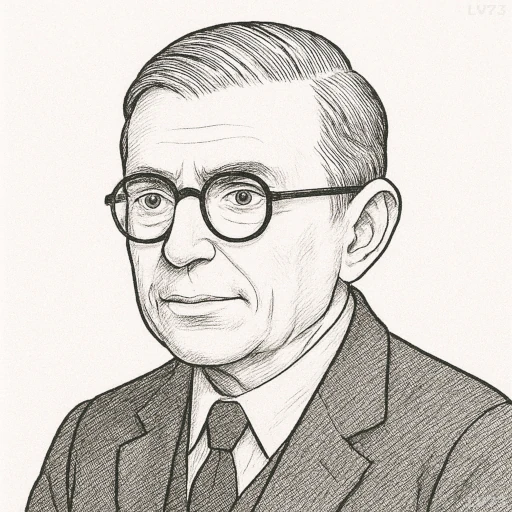“Evil is the product of the ability of humans to make abstract that which is concrete.”

- June 21, 1905 – April 15, 1980
- Born in France
- Philosopher, novelist, playwright
table of contents
Quote
“Evil is the product of the ability of humans to make abstract that which is concrete.”
Explanation
In this quote, Sartre is examining the concept of evil and its roots in human cognition and abstraction. He suggests that evil arises when humans take concrete, real-world experiences or individuals and reduce them into abstract concepts. This process of abstraction allows people to distance themselves from the immediacy and humanity of a situation or person, making it easier to justify harmful actions or beliefs. For example, when people view others not as individuals with their own personal experiences but as members of a broader, abstract category (such as a race, nationality, or religion), they can treat them with less empathy or regard, dehumanizing them in the process.
The power of abstraction is a central theme in Sartre’s existentialism, which emphasizes the importance of concrete experience and the dangers of intellectualizing or detaching from reality. By abstracting concrete, lived experiences, humans can justify violence, oppression, or discrimination, because the human face of the issue is no longer visible. Evil in this sense becomes a product of mental distancing from the individual and the specific, allowing broader, more generalized ideologies to be used to rationalize harm. This distance removes the personal responsibility that comes with engaging directly with the other as a human being.
In modern contexts, this quote speaks to the ways in which ideologies, political systems, and cultural narratives can abstract and dehumanize certain groups of people. By turning individuals into labels—be it “immigrants,” “terrorists,” or “criminals”—societies can justify prejudice, exploitation, and violence against them. Sartre’s insight urges us to recognize the humanity behind every abstract concept and to avoid the temptation to reduce others to mere representations, as this abstraction often leads to moral blindness and harmful actions. The true challenge is to maintain an authentic engagement with others as unique individuals, confronting the realities of their experiences rather than relying on abstract categories that distance us from our shared humanity.
Would you like to share your impressions or related stories about this quote in the comments section?




